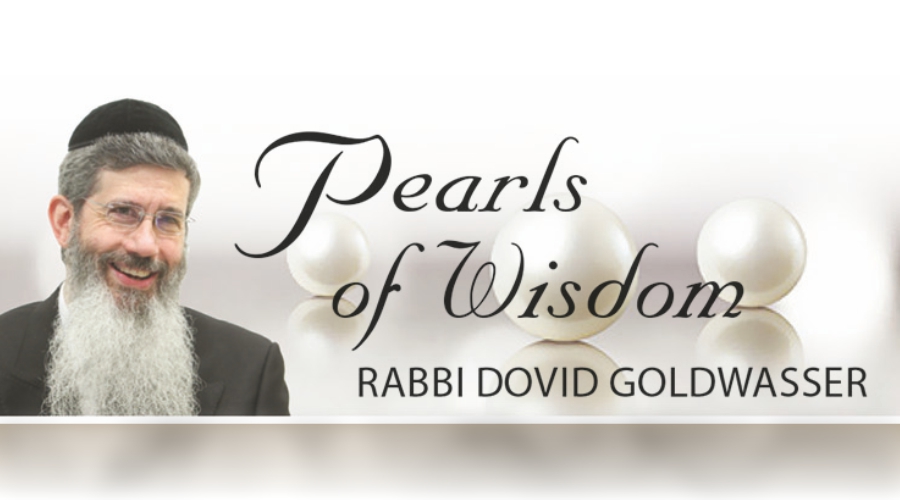The Aseres Yemei Teshuvah are auspicious days for wholehearted repentance, which can completely expunge one’s wrongdoings. A crucial component of teshuvah is viduy. Rabbi Nissim Yagen explains that when a person confesses from the depths of his heart, he develops insight into the severity of his sin, which helps him resolve never again to do it.
The Rambam (Hilchos Teshuvah 2:2) writes that this resolve must be so strong that “He who knows the hidden will testify on his behalf that he will never return to the sin again.” Such a resolve becomes possible by truly grasping the evil of sin. Thus, for example, if a person wishes to resolve never to grow angry again, he should study teachings like that of the Zohar, which states that getting angry is like serving idols. Once he realizes how bad anger is, he will be able to commit to disassociate himself from it.
‘);
_avp.push({ tagid: article_top_ad_tagid, alias: ‘/’, type: ‘banner’, zid: ThisAdID, pid: 16, onscroll: 0 });
The holy Chofetz Chaim, an exalted personage upon whom the Divine Spirit surely rested, would confess his sins every day with intense fervor, and his disciples would try to overhear what he was saying so they could improve their own service of Hashem. He would go out to the fields, lower himself into a pit, and say things like, “Yisroel Meir, why were you so arrogant today? After 120 years, the honor will not accompany you; you will have nothing from this world.”
He would also ascend to the roof of his house to recite viduy. He would enumerate his deeds of the day, including all his “sins.”
We learn in Koheles (12:14), “For Hashem will judge every deed – even everything hidden – whether it is good or evil.” But if a person inspects his own deeds and confesses and doesn’t wait for Hashem to judge his deeds, he can rectify all his sins and sweeten his judgment.
Our sages reveal Adam’s confession to Hashem after the primordial sin. “Hashem,” he said, “You created the entire world with greatness according to Your will. Your kingdom lives forever, and Your splendor and glory [live] for every generation. There is nothing hidden from You. You created me with Your Hands, and gave me rule over the entire creation.
“However, the snake seduced me and I ate from the Tree of Knowledge, as did my wife. I don’t have the words to justify my actions before You. I have truly sinned. I have done evil and therefore been exiled from before You.
“Before I sinned, it was never revealed to my ears what my punishment would be and what would happen to my children’s children. The fear and awe that I cast on the other creations in the past is no longer. From the day I transgressed, my wisdom and understanding have been taken away.
“I ask You to accept my prayer and forgive my sin for You are abundant in forgiveness. May it be Your will to hear my prayer and not to turn away from my supplication.”
The Angel Raziel was subsequently sent to Adam, who was standing near the river that flowed out of Gan Eden. “Why are you sad and worried?” asked the angel. “You should know that from the day you prayed and supplicated before the King of kings, your words were heard, and I came to you to teach you wisdom from the sefer in my hands.”
The angel read the sefer together with Adam, who fell on his face, shaking. The angel then instructed him to rise, strengthen himself, and always carry the sefer so that it would help him, guide him, and guard him. Adam then took the sefer and the angel departed heavenward amid flames of fire.
During this special time of Aseres Yemei Teshuvah, we all seek inspiration and encouragement that we will be forgiven. It is therefore important to know that although Adam’s sin changed the world, he was forgiven by Hashem, the One who is full of compassion and loving kindness. We can likewise achieve full forgiveness and absolution and be granted a year of blessing, success, good health, happiness, peace, and prosperity.
The Steipler Gaon, HaRav Yaakov Yisroel Kanievsky, one of the great tzaddikim of the past generation, was once walking on the sidewalk and noticed that a young child was about to collide with him. He, therefore, gently picked the child up and moved him aside.
A moment later, though, after quick reflection, he turned around and ran after the child to ask him for forgiveness. He was not certain, though, that the mechilah was legally binding since the boy was under bar mitzvah. So he asked the boy for his name and recorded it in his notebook. Five years later, on the day of the young boy’s bar mitzvah, the Steipler Gaon, to everyone’s amazement, personally appeared at the door of the bar mitzvah boy to properly ask for his forgiveness.
‘);
_avp.push({ tagid: article_top_ad_tagid, alias: ‘/’, type: ‘banner’, zid: ThisAdID, pid: 16, onscroll: 25 });




